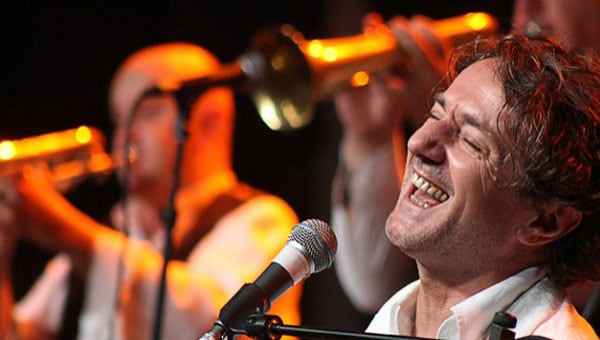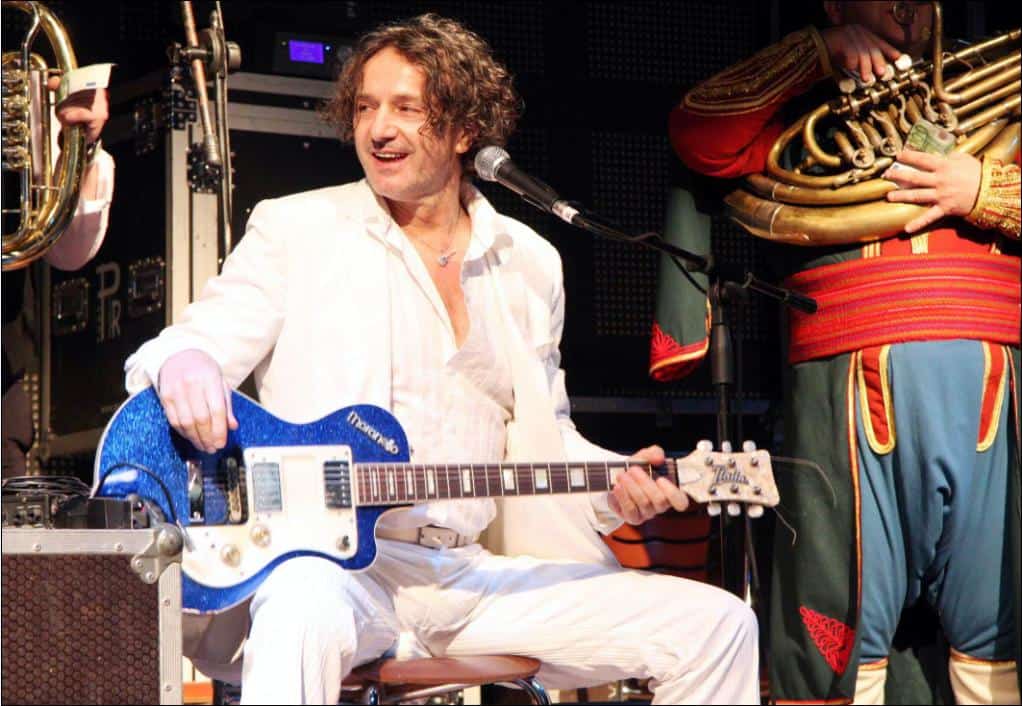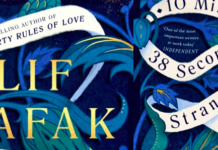Goran Bregovic’s latest album, Champagne for Gypsies (2012), was intended as a criticism of the recent discrimination against the Roma people, one of the largest European minority groups that often falls victim to exclusion and prejudice. For this album, Bregovic collaborated with musicians of Gypsy origin around the world, such as the Gypsy Kings or Eugene Hutz, frontman of the Gypsy punk band Gogol Bordello.

Born in Sarajevo to a Serbian mother and Croatian father, Bregovic started his musical career at the age of 16 under Tito’s dictatorship in the former Yugoslavia. His band Bijelo Dugme (White Button) became one of the most influential in the alternative scene of Sarajevo in the 70s and 80s. In the late 80s, when Bregovic was already a rock star ready to retire, filmmaker Emir Kusturica invited him to compose the soundtrack for his film “Times of the Gypsies.” This started his second musical career as a recognized score composer. As a consequence of the war that divided Yugoslavia, Bregovic lived in exile in Paris. With his Weddings and Funerals Orchestra he reinvented once again his musical career as a solo artist, and his music has contributed significantly to the current popularity of Balkan music around the globe. Riding this wave of popularity, Bregovic was set to play his second concert of 2014 in Istanbul last Friday night at Harbiye Cemil Topuzlu Amphitheater.
About half an hour late, with an impatient audience already clapping, a couple of musicians started to play from both sides of the amphitheater. It was the entrance of the Weddings and Funerals Orchestra, the beginning of the party, the Goran Bregovic party, in Istanbul.
The musicians calmly took the stage wearing traditional costumes, while Bregovic was dressed in a grey shiny suit and golden shoes. After beginning energetically with “Gas Gas,” they played a series of calmer songs. Maybe it was the slightly cold wind in the open amphitheater, but both the audience and the musicians took some time to warm up. After a few more songs, some parts of the public started to stand up and dance. This started it all; by the end of the concert, everyone at the show was cheering and dancing.
This time Bregovic brought the small version (9 people) of his band to Istanbul. Bregovic, his co-singer and two beautiful voices from the choir, two Bulgarian women dressed like villagers, each sang with a different rhythm in a different language, and the Turkish audience responded with an improvised dancing, raising their hands and moving their feet. The high energy of Goran’s Weddings and Funeral Orchestra infected the crowd. The term “music without borders” really came to life, and it was ecstatic. Those in attendance didn’t stop enjoying themselves for a second, and neither did Bregovic. Moreover, he always had the orchestra totally under control, even while playing the guitar. A simple move of his finger made the trumpets enter, while a move with his elbow stopped them right away.

Like in a Kusturica movie, there was something different happening every moment, each one crazier than the one before. Where in the films this happens with accelerated surrealistic scenes, on the stage it translates to a mix of Balkan hip-hop, reggae-mariachi or a fuse of techno-beats with flamenco guitar. You’re not entertained? There is always more, much more. And it never slows down (with the rare exception of songs like “Presidente”). The concert is a pandemonium from start to end, like a wild circus that continues to escalate.
This type of music seems to really speak to the Turkish public. Back in 2008, the artist composed the soundtrack for the film Mustafa, a biographical documentary about Ataturk, and during the concert he played some songs by Sezen Aksu and Candan Erçetin.
The band offered the public several encores. After each one, Bregovic looked to the public and after confirming that they wanted more he sat again and played one more. The band, incredibly generous, played without sparing anything. The last song of the night was “Kalashnikov,” a vibrant and exhilarating performance that totally engaged the audience.
During his forty-year career, Goran Bregovic has become a Balkan legend. And the artist breaks language barriers to bring Balkan dance sounds even to the most clueless. His music is political, critical, rebellious, festive and effusive; he produces a joyous, life-affirming sound.
The concert resulted in over two hours of full communion between Bregovic, the musicians and an eager audience that cheered from start to finish.









